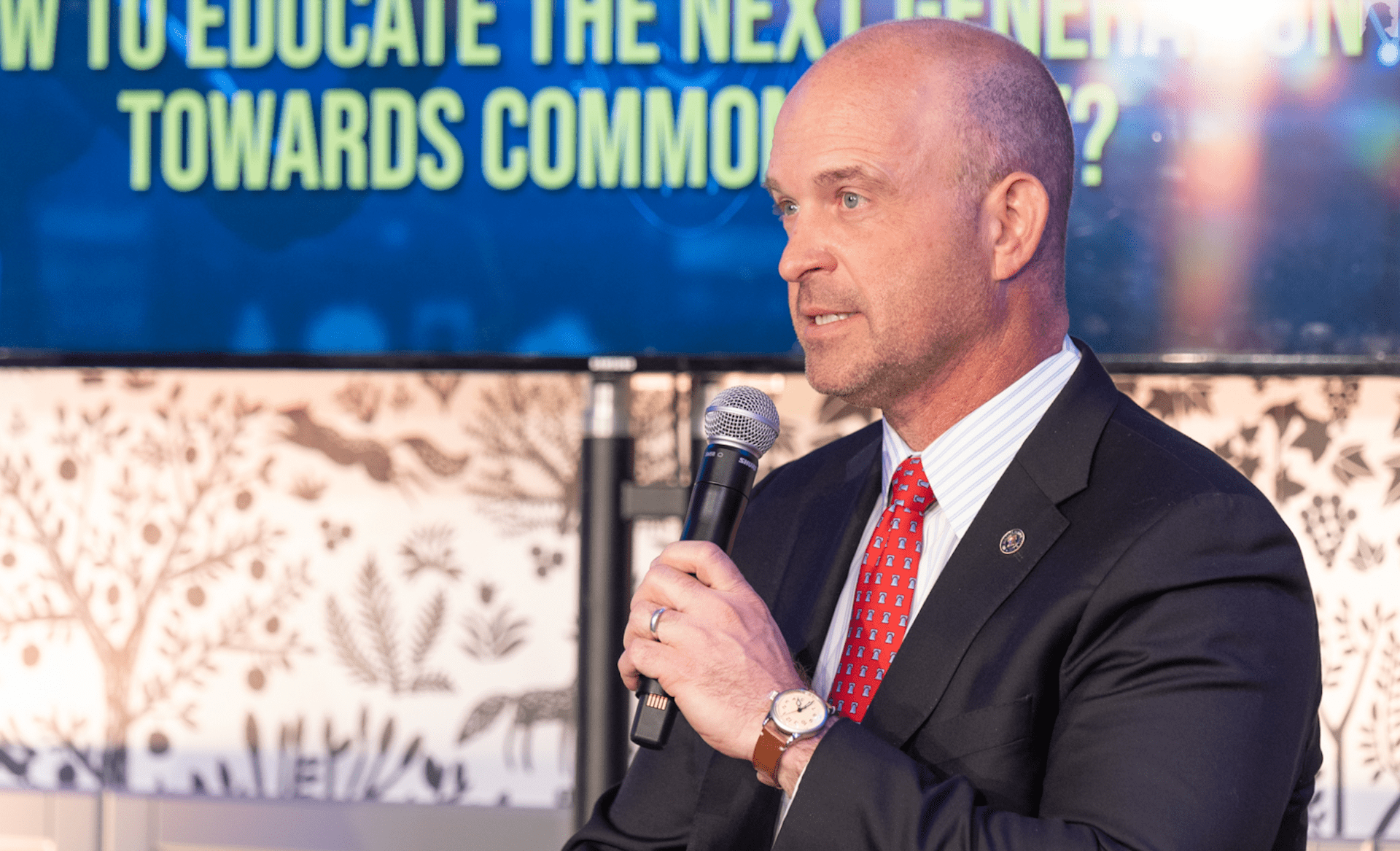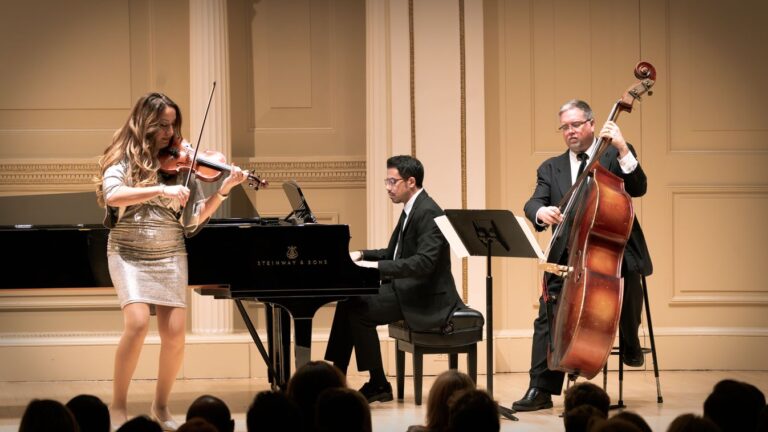The ever-growing gap between Western political elites and the people they are supposed to represent is beginning to feel like a central axiom for today’s political landscape. In our globalized world, where special interest groups have significantly grown in relevance while value-based policy-making has all but disappeared, people rarely feel that their elected representatives are working in their best interests. As a result, the primary role of think tanks in Western democracies has perhaps become to bridge the gap between the people and their leaders, and to remind politicians of the realities on the ground. At least according to Dr Kevin Roberts, president of the Washington-based Heritage Foundation, one of America’s oldest and most prestigious conservative think tanks. A candid interview about good and bad governance, Republican responsibility, the future of conservative values and whether there is a model conservative statecraft today.
Heritage Foundation has a remarkable history; it is one the oldest conservative think tanks in continuous operation in American history. It has been around for almost fifty years, and you are only the seventh president. That’s a lot of stability, especially if we look at it from Central Europe.
Thank you. Well, that’s a lot of stability even in the American political context. There’s a lot of turmoil in Washington, so yes, Heritage is special.
How would you briefly describe Heritage Foundation’s mission?
Our mission statement is even more fundamental than what we say on our website. It is to be the everyday Americans’ advocate in Washington DC and in every state legislature in our country. As a brief explanation, what that means is that we often take positions that are unpopular among the elites in Washington or academic institutions—as we did this week in opposing the legislation that enshrines same-sex marriage in our country. We will always do what’s right and what’s true even if it seems to be unpopular. Because we are the everyday Americans’ organisation; not an organisation for any elite.
Any elite, you say? So, you don’t have any formal affiliation with the Republican Party?
None. In fact, we can’t. But even if we could, we wouldn’t—and I’ll explain that. We can’t because of a federal law that disallows an organisation with a non-profit status from being formally affiliated with a political entity. We can—in the realm of ideas, not in the realm of campaigns— and do work with the Republicans. We also do work with a few Democrats. Personally, I am a lifelong Republican, I love the Republican Party. But there’s a lot of tension between Heritage and the Republican Party.
The problem is not with grassroots, rank-and-file Republicans—normal people, like you and me—but with Republican leaders in Washington.
A lot of them tend to be cowards. Especially when it comes to social issues, fiscal issues, foreign policy and so on. Not all of them, to be clear, there are many great folks in Washington.
But Heritage is their accountability partner, if you will, on doing the right thing. And politicians don’t like doing the right thing. Nonetheless, we’re grateful for the Republican Party; almost everyone who works for the Heritage is a Republican. We can’t formally affiliate with them because of these legal reasons, but it’s also good that we aren’t. It gives us the independence to tell them—as we did twelve members of our Senate last night, who voted for that atrocious bill—that they’re wrong.
The US recently held mid-term elections, where many of us expected a red wave and both chambers of Congress to get under Republican control with wide margins. That did not come to pass. Why do you think the GOP performed so poorly?
I too thought that there would be a red wave. In fact, I said that on national television. And I was dead wrong. I’m glad that at least the Republicans picked up the House, because for Heritage, that increases the chances that we can get some of our ideas put into law. But it would be even better if the Republicans controlled the Senate too because that would give us an even stronger position.
There are probably two or three main reasons the red wave didn’t happen. The first is that the Republicans did not have an organized message that articulated an aspirational vision for the future of America. The House Republicans did, but only one month before the election started. So, Heritage, which is an organisation that deals with ideas in policy, has been saying since January of this year to the House and Senate Republicans: ‘You need to run on something! You need to tell the American people what’s going to be different in their lives if you win! Look, here are our policies, here are messages that we tested on millions of dollars—go, run on this!’ The House Republicans deserve some credit because they did a little bit of that, but the Senate Republicans—because of the atrocious leadership of Mitch McConnell of Kentucky—were hostile to it. Hostile to it! Before the election, we hosted Senator Rick Scott from Florida—who’s a great friend—because he had a plan. And the establishment Republicans from Washington were so angry at him and me and Heritage for doing that, all for having a plan. Well, guess what?
The American people were tired of hearing the Republicans just bash president Biden with no solutions.
They were tired of hearing the Republicans complain about inflation with no solution. As challenging as both of those are, they want to know what the policies are going to be!
So that’s factor one. Factor two is that Republicans are really bad at turning out to early vote. Although at Heritage we wish that all voting took place on one day, the reality is that in a growing number of states— and keep in mind that states control these laws, not the federal government—voting happens weeks before election day. And if you just look at the data, the Republican Party is really bad at getting out the vote early enough when people started voting. I do believe that they are going to correct that problem, but mechanically, that’s why you could have four million more Republican votes nationally than Democrat votes and still not have a red wave. Because the Democrats—very much to their credit, they’re great political operatives—focused on those US House districts where they could move the early vote.
And the third reason is, I do believe, that we didn’t have the strongest field of candidates. You know, the American press (including the conservative press) likes to place the blame on President Trump, some of them like to place the blame on Senator McConnel. I’m not in the blame game, however. I just know that in places like Pennsylvania, which was a winnable seat, we had a candidate running who was not from Pennsylvania. And that encapsulates the problem.
After the election, you tweeted: ‘One of the great symptoms of American decline is that we don’t know the outcome of elections by midnight of Election Day. That’s Third World kind of nonsense.’ Does this mean that you suspect that fraud might have taken place?
We know at Heritage that election fraud has been happening for decades. We were working on election integrity well before the legitimate questions about the 2020 elections were raised. It’s still too early to verify or not verify whether fraud happened in this midterm, although I suspect that at least some did.
But what I meant by that tweet is a bit different. Let’s just hypothesize that fraud didn’t happen—although I don’t agree with that. But let’s say that it didn’t. Then, it is even more ridiculous that in the United States of America (which likes to send its former president Jimmy Carter around the world as an election monitor) we’re almost in December [the interview was conducted at the end of November] and there is still a congressional race that has not been decided. That is the third world! And the response to that tweet from some Democrat operatives was that they have to count all the paper ballots. I grew up in the 1970s and ‘80s before computers were used in elections, in a third-world state known as Louisiana, and we knew the election results by midnight!
So, this is how I would sum it up. We got to be better, we got to be faster. There has to be a commitment to having enough election employees to get the results in.
Or many Americans will continue to suspect that there’s something fraudulent about our elections.
So, if you’re on the political left or political right and you think there was no fraud, then you have all the more reasons to count the votes quickly.
To get back to today’s news about the new bill that was passed by Congress, I think there’s still much confusion about its supposed role and effects. Would you briefly clarify why Heritage and conservatives in general are against the Respect for Marriage Act?
The first thing is that the Respect for Marriage Act is a misnomer in Heritage’s view. It doesn’t respect traditional marriage between a man and a woman. Secondly, it’s unnecessary because of the Obergefell decision. That reality should tip us off to the real agenda—the undermining of religious liberty. Put simply: the Radical Left will not sleep until they make it illegal for people of faith to adhere to the truth that marriage is between one man and one woman. This is not about tolerance, love, or even marriage — it’s about totalitarianism, plain and simple.
🧵: Myths and facts about the so-called “Respect for Marriage Act” (set for a Senate vote today)
— Heritage Foundation (@Heritage) November 16, 2022
Conservatives have always been struggling with being appealing to the youth, in America and elsewhere alike. This was considered natural decades ago, but the internet has exacerbated the problem since then. It seems today that if we fail to educate the young generation about our values, conservatism will cease to exist eventually. As a small government advocate, do you think the state has a responsibility in that sense, influencing the curricula of public schools, or should it be left to civil society and the family?
Well, that’s not only a very good question, but that, I think, is the question. At Heritage we would like to limit the government’s involvement wherever we can and, of course, we naturally gravitate toward civil society and the family. But frankly, we have to admit that it’s not enough. American civil society is so weakened, that
conservatives—while rebuilding civil society—must simultaneously use the state to inculcate American values in government schools.
Thankfully, we’ve made progress in places like Texas, Florida, and Arizona, which provide models for further action in other states and at the federal level. As for the things such as critical race theory or LGBT propaganda disguised as sex education in schools, I believe that both must be stopped, because they’re evil. Conservatives must display the political courage to wield the power they have, especially for our youngest Americans.
Everyone in the West believed in the beginning that the sanctions and the continuous military assistance will end the war in Ukraine. It didn’t. Some leaders, including PM Orbán, believe that only Russo-American peace negotiations can put an end to the hostilities, and urge the US to stop sending weapons to Ukraine and engage in peace talks instead. What is the US’ primary responsibility in this war in your opinion?
The US has two responsibilities: first, it should have sent war material to Ukraine months before the invasion, which may have prevented the war, to begin with. But the haplessness of the Biden regime prevented that. Second, the US needs to be more actively brokering a diplomatic solution. The war isn’t ending anytime soon, so the tragedy and evil propagated by Putin will persist. I should add that the war would never have happened had President Trump still been in office: the only thing that thugs like Putin understand is raw power, which our former president, to his credit, referenced selectively and effectively.
An increasing number of political observers on both sides of the Atlantic consider post-2010 Hungary a sort of model country for conservative statecraft. Of course, just as many think the exact opposite. Where do you fall on this spectrum regarding the arguably unique model of the Fidesz government?
Modern Hungary is not just a model for conservative statecraft, but the model. Americans, Brits, Spaniards, Australians—everyone—can and should learn from it. And by the way, I think we will, as The Heritage Foundation will be a major advocate of it on both sides of the Atlantic. Obviously, then, you know that on your spectrum regarding the Fidesz government, I am a huge fan—with the exception that soon, your government must find a way to untether from China, Russia, and Iran, otherwise it risks losing the open support from American conservatives who consider those regimes our enemies.
It was an honor, @PM_ViktorOrban, to meet with you. One thing is clear from visiting Hungary and from being involved in current policy and cultural debates in America: the world needs a movement that fights for Truth, for tradition, for families, and for the average person. https://t.co/7tjTL79Wpy
— Kevin Roberts (@KevinRobertsTX) November 29, 2022
What kind of Republican candidate would you like to see running in 2024?
American conservatives need fighters—men and women who understand that we have a narrow window of opportunity to take our country back from the Radical Left. Their policies and approach must be, as I like to say, ‘on offence every day’. And yet they must pair that with a cheerfulness and an ability to articulate an aspirational vision for the American future. That’s what was missing in the midterm elections.








